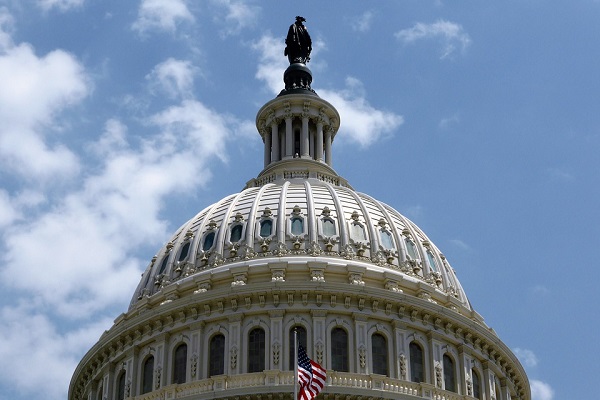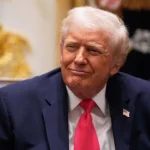
–>
July 3, 2022
President Lincoln’s Gettysburg Address is roughly 270 words long. The Declaration of Independence is around 1,320 words. Those two documents alone prove the power of brevity. (Whenever I find that I am unable to write what I’m trying to say within the Lincoln-Jefferson word limit, I chuck it in the trashcan because I’ve most likely buried my intended message under parasitic weeds.) The whole U.S. Constitution, the shortest in the world, has only 4,400 words. Yet every two-year Congress since WWII has enacted 4-6 million words of new law. A wise man once told me that if a law can’t be written in a single sentence, it has no business restricting Americans’ liberty. Over 200 million words of imposed law since the last Great War have no doubt stolen a good deal of Americans’ natural rights and liberties.
‘); googletag.cmd.push(function () { googletag.display(‘div-gpt-ad-1609268089992-0’); }); }
Do we believe the modern American legislature’s verbiage is a necessary requirement for fulfilling the promises outlined in our founding documents? Or is it more likely that Congress learned long ago that it could bury monumental power grabs underneath an untamed jungle of distracting weeds and has been writing new weeds into law ever since?
Tyranny comes in many forms, yet one of its subtlest is manufactured complexity. Esoteric language + complicated bureaucracy = citizen compliance. If no-one understands the law or how the monetary system works or whether some agency exercising government power is legitimate, then a great deal of corruption and crime can be committed without the public’s objection. Complexity is the favorite poison of those with power.
Consider how the government’s tyranny through complexity makes answering even the simplest questions quite difficult:
‘); googletag.cmd.push(function () { googletag.display(‘div-gpt-ad-1609270365559-0’); }); }
(1) Have you broken any laws today?
(2) How many departments or agencies exert power over you?
(3) Is saving money wise?
(4) What does the Constitution say?
In a society governed by reason and rationality, these four questions should be rudimentary for any citizen. Instead, they are outrageously vexing.
(1) There are tens of thousands of state and federal laws, hundreds of thousands of rules and regulations set forth by administrative decree, and limitless possibilities for judicial interpretation to shape what is legal and illegal. (2) The administrative bureaucracy is always expanding with the formation of new agency subsidiaries of some department’s creation of this group’s authority or that committee’s jurisdiction to take a slice of Executive power for itself to wield against ordinary Americans. (3) Because the Federal Reserve is a private company that manipulates the supply of U.S. currency and because the U.S. dollar is not backed by anything except the Treasury’s promise that its paper has value, saving monetary currency has the obscene effect of debasing wealth. (4) And ever since Chief Justice John Marshall empowered the Supreme Court alone to decide the Constitution’s meaning in the 1803 case of Marbury v. Madison, courts have magically discovered implied powers, hidden rights, and unknown obligations all appearing and disappearing according to the subjective determination of any given jurist to hunt down unwritten language lurking in the “penumbras and emanations” that miraculously exist beyond the plain meaning of the Constitution’s text.
‘); googletag.cmd.push(function () { googletag.display(‘div-gpt-ad-1609268078422-0’); }); } if (publir_show_ads) { document.write(“
Just these past two weeks, this last point was driven home when the Court ruled correctly that abortion is not a constitutionally protected right and that New York’s restrictions on carrying guns outside the home violate the Second and Fourteenth Amendments. By originally divining a constitutional right to abort a child in the womb, the federal government stole power from state governments. By enforcing a gun restriction that infringes on an individual’s constitutional rights, New York stole power from anyone within its jurisdiction. The first case remedied a misreading of the Constitution that has been law in America for nearly half a century, while the second case remedied an unconstitutional power grab that has been law since 1913. That’s an awfully long time for Americans to endure illegitimate exercises of power. When the Judiciary embraces imaginary complexity to bend the Constitution to its will, either our governing document or society will eventually snap in two.
A regrettably large share of our legal experiences operate not in the shadow of the Constitution and its constraints, but rather in the shadow of explicitly unconstitutional rules, actions, and orders. In the time it takes for improper Executive Orders to be reined, for illicit administrative decisions to be corrected, and for misinterpretations of constitutional power to be overturned, so much of society’s activity is framed by what we might call the not-Constitution — all those acts of government that are deemed illegal only after they have caused enduring harm. A most troubling aspect of government power is its insistence on pushing past constitutional constraints and operating in a blurry legal wilderness of its own creation while forcing Americans to prove that those power grabs lack legitimacy.
Governance is always about overreaction and never about precise remedy. In response to the vast economic aggregation during the late 19th-century industrial boom, progressivism delivered not only curbs on corporate monopoly power, but also the creation of a vast administrative bureaucracy with unchecked powers of its own. In response to unjust Jim Crow laws, the Supreme Court acquired unjust super-legislative powers. In response to air and water pollution, President Nixon created an Environmental Protection Agency whose power has grown to stifle American industry and threaten private property. In response to a perceived health insurance crisis, Obamacare’s socialized medicine has only exacerbated the cost of healthcare while giving the government a peek at Americans’ private medical records. Every time government identifies a problem, its answer is to expand its own inherent powers and complicate matters further.
Historically, Congress’s budgetary “power of the purse” empowered the “people’s representatives” to restrict Executive overreach and the natural human proclivity to harness unchecked power. The quickest way to arrest illegitimate government power, in other words, was to stop paying for it. A century of central bank money printing, runaway deficit spending, and doomed mandatory spending commitments, however, have handed the “power of the purse” to the bankers and bureaucrats. In exchange for giving away the people’s power over their government, Congress legally encumbered the nation’s property, monetary, and banking systems in such a way as to maximize the federal government’s power over every purse in every kitchen in America.
All these legal and economic charades hide government tyranny behind so many layers of complexity that ordinary people throw up their hands in exasperation. What can possibly be done to thwart the machinations of the State when its illegitimate power grabs opened Pandora’s box long ago? That feeling of hopelessness is exactly what bureaucrats crave.
The more one denies his own agency, the more enslaved he is to whatever system he insists is oppressing him. The more one relies on a socialist system of government, the more he relinquishes individual liberty for the promises of assured survival and subsistence. The more one leans on government to provide human liberation, the further away from freedom he runs. Through the illusion of complexity, one resulting social order becomes guaranteed: a small ruling class controls everyone else.
Here’s the thing, though: once you realize that complex institutions exist largely to tame and subdue the public, then it’s the people with extraordinarily simple yet powerful demands — life, liberty, and the pursuit of happiness — who begin to resonate with everyone else.
Should we ever find ourselves returning to those same basic foundations that were succinctly expressed in the Declaration’s nimble 1,300 words, I propose we dispose with all laws on the book today and begin again with something exceedingly straightforward: All future legislation must be memorized and recited by at least one member of Congress before becoming law.
After all, an easily understood Constitution + a limited bureaucracy = an empowered citizen. That’s the American way.

Image via Max Pixel.
<!– if(page_width_onload <= 479) { document.write("
“); googletag.cmd.push(function() { googletag.display(‘div-gpt-ad-1345489840937-4’); }); } –> If you experience technical problems, please write to [email protected]
FOLLOW US ON
<!–
–>
<!– _qoptions={ qacct:”p-9bKF-NgTuSFM6″ }; ![]() –> <!—-> <!– var addthis_share = { email_template: “new_template” } –>
–> <!—-> <!– var addthis_share = { email_template: “new_template” } –>





